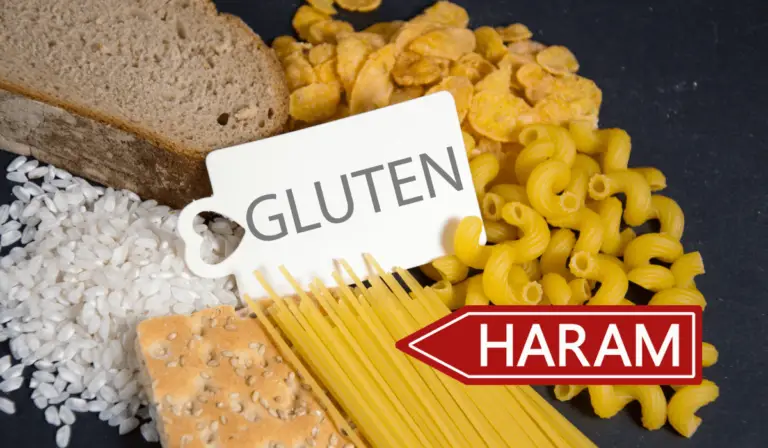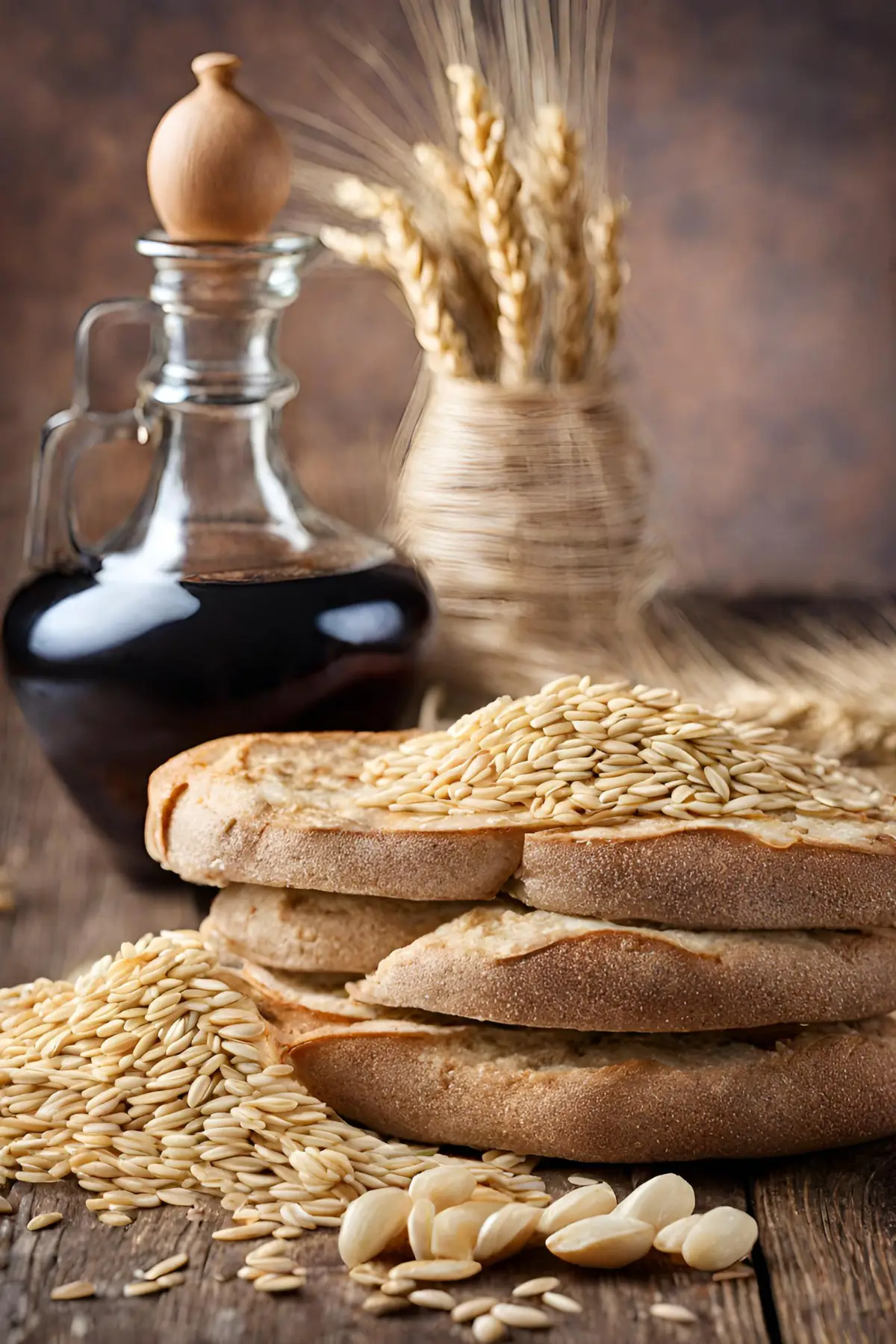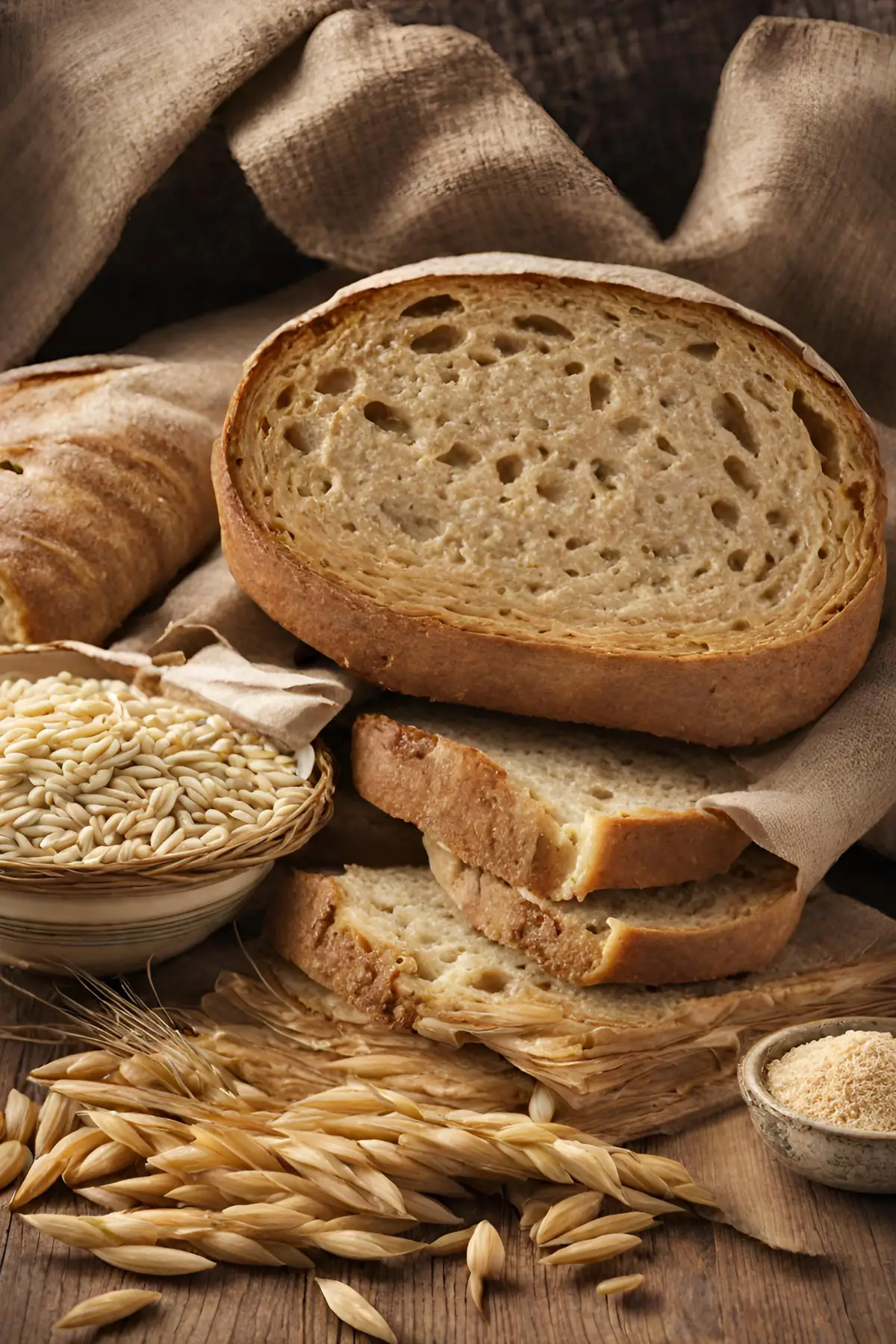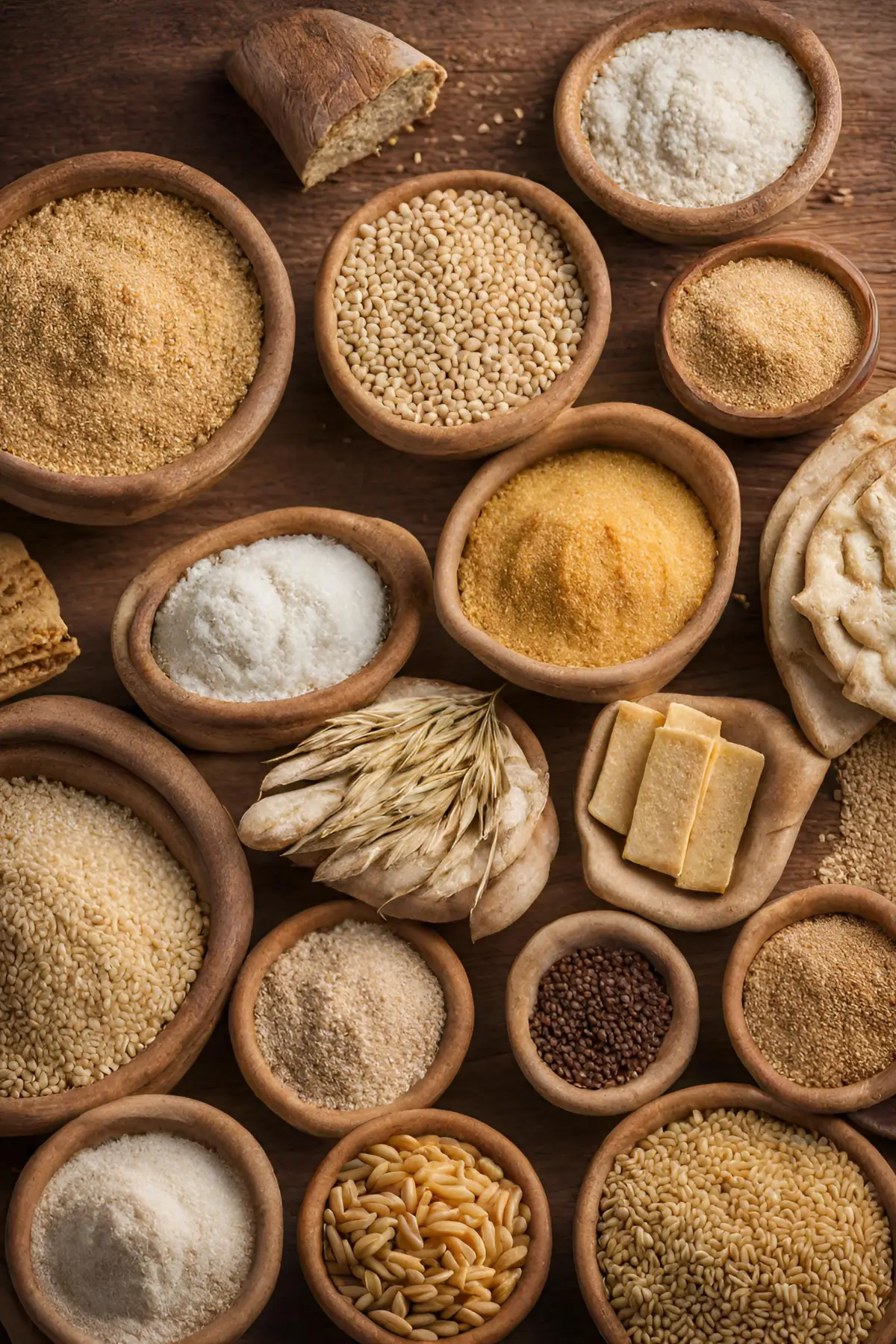 Is Gluten Haram? Understanding Its Place in Islamic Dietary Laws
Is Gluten Haram? Understanding Its Place in Islamic Dietary Laws
Gluten, a mixture of proteins found in grains like wheat, rye, and barley, is a common ingredient in many foods. Its role in Islamic dietary laws, particularly whether it is halal or haram, is a topic of interest for many Muslims seeking to adhere to their religious dietary restrictions.
Gluten in Islamic Dietary Context
In the context of Islamic dietary laws, for gluten to be considered halal, it must be 100% plant-based and free from any pork or other haram substances. The concept of halal food in Islam is not just about the avoidance of pork and alcohol but extends to ensuring that all consumed food is pure, clean, and not harmful to health. To understand more about halal certification, visit Understanding Halal Certification.
Historical Perspective: Prophet Muhammad’s (SAW) Diet
The historical diet of Prophet Muhammad (SAW) sheds light on the nutritional practices and preferences in the early Islamic period, focusing on simplicity and nourishment. Known for his modest lifestyle, Prophet Muhammad (SAW) often consumed foods that were easily accessible and provided essential nutrients. This dietary choice reflects not just a personal preference but also the agricultural practices and food availability of the time.
Islamic Dietary Laws and Practices
Islamic dietary laws, known as Halal, play a significant role in the lives of Muslims. These laws dictate permissible foods and the proper methods of slaughtering animals. The consumption of alcohol and pork is strictly prohibited. However, grains like barley and wheat, which are sources of gluten, were commonly used and are considered Halal, provided they are not contaminated with prohibited substances during processing.
Gluten in Islamic Tradition
Gluten is a protein found in grains such as wheat, barley, and rye. It gives dough its elasticity and affects the texture of baked goods. In the context of early Islamic tradition, the consumption of these grains, particularly barley, was prevalent. This indicates that gluten, as part of these grains, was a component of the diet during Prophet Muhammad’s (SAW) time.
Modern Considerations for Gluten Sources
In today’s context, the primary sources of gluten are:
- Wheat: A staple ingredient in bread, pastries, soups, and cereals.
- Barley: Used in malt, food coloring, and as a leavening agent in bread.
- Rye: Found in rye bread, certain alcoholic beverages, and some cereals.
Therefore, Muslims are advised to be vigilant about the sources of these ingredients and the processing methods used by manufacturers.
Conclusion
The diet of Prophet Muhammad (SAW) serves as an example of moderation and nutritional wisdom, highlighting the importance of consuming wholesome and Halal food. The historical consumption of gluten-containing grains underlines their permissibility in Islamic tradition, provided they are free from Haram (prohibited) substances.
The Halal Certification Process for Gluten-Containing Foods
including those containing gluten, is an essential mechanism that ensures the dietary needs and religious observances of Muslims are respected and met.
-
Ingredient Verification: The first step involves a thorough review of all ingredients used in the food product to ensure none are derived from haram sources, such as pork or its by-products. This includes the primary gluten-containing grains (wheat, barley, and rye) and any secondary ingredients.
-
Examination of Processing Methods: The methods used in preparing and processing the food are examined. This includes the cleanliness of the equipment to avoid cross-contamination with haram substances, ensuring that the entire production line is halal-compliant.
-
Supplier and Manufacturer Compliance: The supply chain, including suppliers and manufacturers, is audited to ensure that they adhere to halal standards. This step is crucial for maintaining integrity and trust in the halal certification process.
-
Certification and Labeling: Once a product has passed the inspection and meets all halal criteria, it is certified as halal. This certification is then reflected in the product’s labeling, providing Muslim consumers with the assurance they need to make informed dietary choices.
Contemporary Gluten-Containing Foods and Their Halal Status
In the modern food industry, the diversity of food products and the complexity of their ingredients have made it increasingly challenging to ascertain the halal status of gluten-containing foods. Some of the considerations include:
-
Bread and Cereals: These staples may include additives or flavorings that originate from haram sources. The use of enzymes in bread-making, for instance, can be a concern if those enzymes are derived from prohibited animals.
-
Processed Foods: The complexity of processed foods means they often contain hidden ingredients or additives that may not be in line with halal dietary laws. Emulsifiers, preservatives, and other synthetic ingredients need to be scrutinized for their source and processing.
Conclusion
For Muslims adhering to halal dietary guidelines, the consumption of gluten-containing foods necessitates careful consideration of their halal certification. The halal certification process is designed to ensure that all aspects of food production, from ingredient sourcing to processing, align with Islamic dietary laws.
FAQs
Is all gluten halal?
Gluten, a protein found in wheat, barley, and rye, is inherently halal since it is derived from plants. However, its halal status can be compromised if it is processed with or mixed with haram (forbidden) substances, including certain types of gelatin.
Can Muslims consume gluten with animal-derived ingredients?
Muslims can consume gluten with animal-derived ingredients, provided those ingredients are halal. This means the animal must be slaughtered according to Islamic law, and the ingredient must not come from prohibited animals, such as pigs. For instance, gelatin derived from fish or halal-slaughtered cattle is permissible.
How to identify halal gluten in processed foods?
Identifying halal gluten in processed foods involves a few steps:
- Look for Halal Certification: The simplest way is to look for products that have been certified halal by a reputable organization. This certification should cover not just the primary ingredients but also any additives, including gelatin.
- Check the Ingredient List: For products without halal certification, carefully read the ingredient list on the packaging. Be vigilant for any mention of gelatin and investigate its source if it is not clearly labeled as “fish gelatin” or derived from halal-certified animals.
- Contact the Manufacturer: If the source of gelatin or the halal status of the product remains unclear, contacting the manufacturer directly can provide definitive answers.
Key Takeaways
- Gelatin’s Halal Status: The permissibility of gelatin in Islam depends on its source. Gelatin from halal animals that are properly slaughtered according to Islamic law is halal, while gelatin from pigs or improperly slaughtered animals is haram.
- Vigilance is Key: Muslims must exercise caution and diligence when purchasing gluten-containing processed foods or desserts that might include gelatin.
- Seeking Halal Certification: Opting for products with clear halal certification can simplify dietary choices and ensure adherence to Islamic dietary laws.
Final Thoughts and Recommendations
In conclusion, whether gluten is halal or haram is conditional. It must be 100% plant-based and free from any haram substances. Muslims should be cautious and informed when selecting gluten-containing foods, ensuring they align with Islamic dietary laws.




